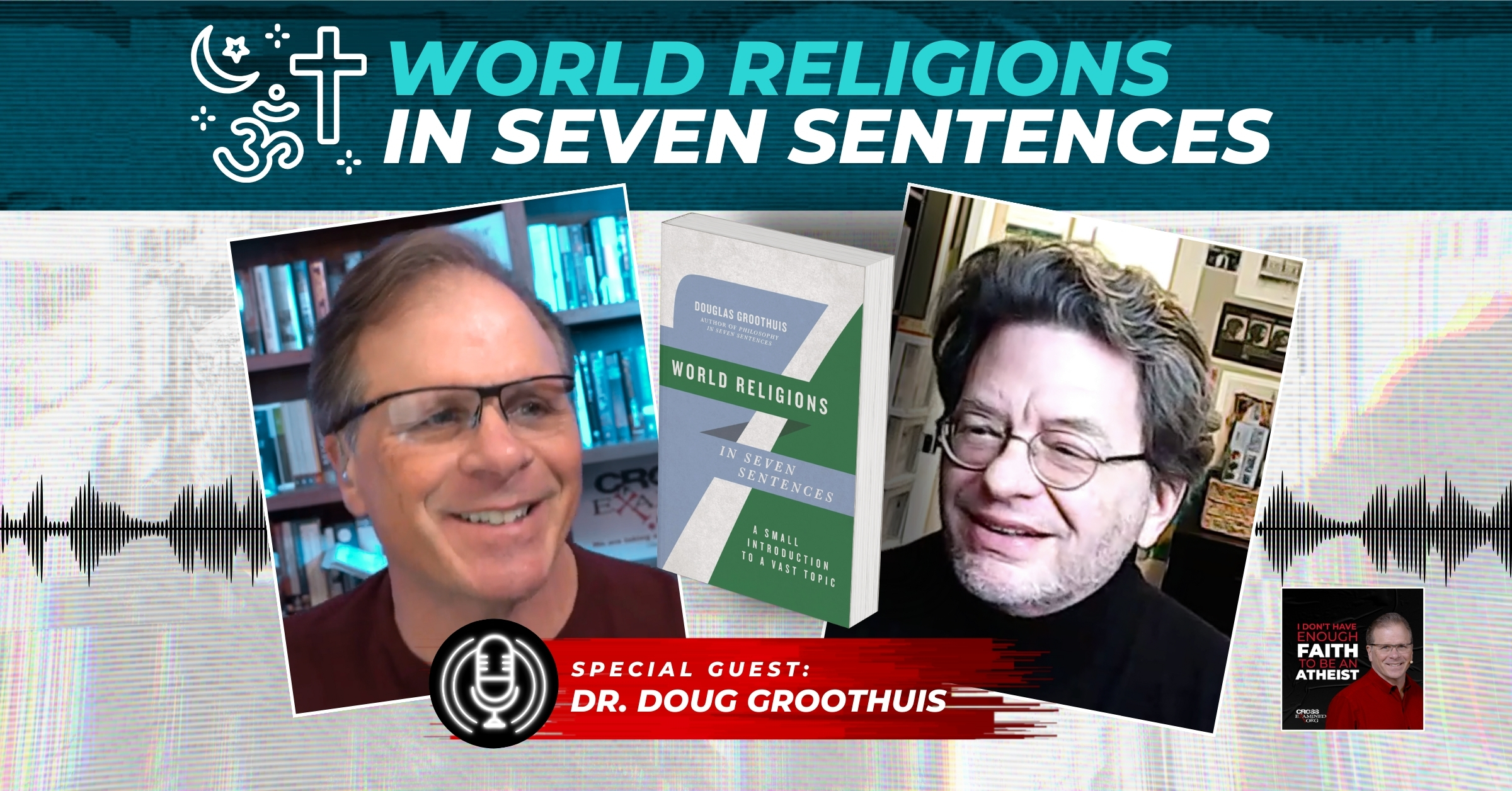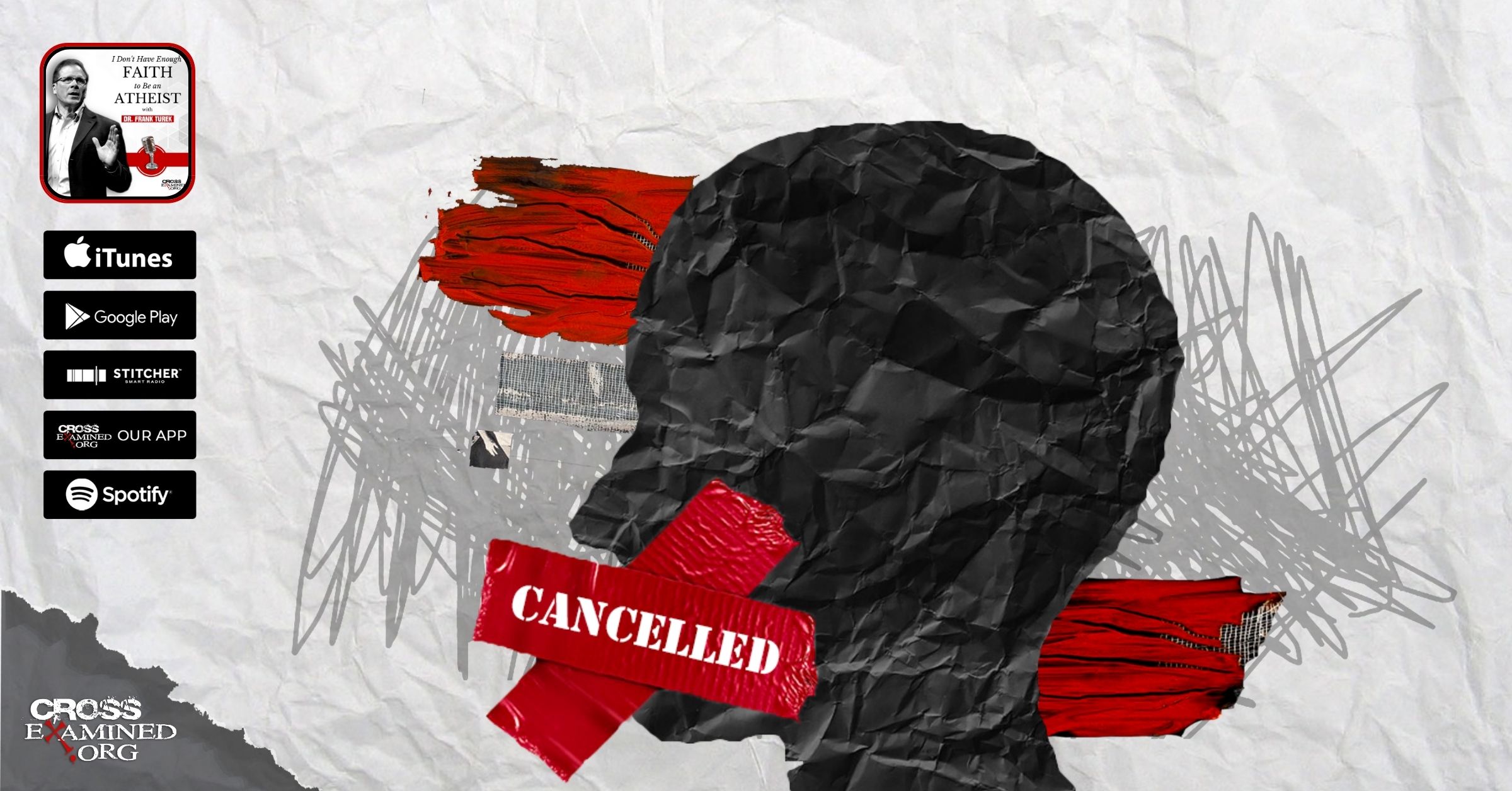Joshua’s Conquest and God’s Moral Consistency
By (Josh Klein)
If God is so good, why did he command the Israelites to utterly destroy everyone and everything in the Old Testament?
Is God a moral monster?[i] Particularly in the conquest of the land of Canaan? God calls for the complete and utter destruction of men, women, and children (as well as animals) multiple times[ii]. How could a moral God do this? Is that not genocidal malevolence? Would we not condemn a national leader today if they said “God told me to do murder thousands of children and women in His name” as a lunatic and a monster?
I believe these are important questions.
The question is a thoughtful one. When asked honestly, it takes seriously the biblical claims of God’s goodness, righteousness, love, and grace. The question, better asked, is like this: If God is who the rest of scripture says he is then how could he act in such a manner here? If God’s morality is inconsistent, then he really is not a god at all is he?
How we answer this question says a lot about who we believe God to be and what we believe scripture to be.
When I was in seminary, I took a class on Old Testament theology. I enjoyed the class because it came from a different perspective than I was used to. The professor in the class insisted that much of the narrative was mythological and/or allegorical in a way that was intended to set up Judaism’s religious structure and, ultimately, their need for a Messiah. He went so far as to say that Israel was likely a people that “emerged” from within the land of Canaan only to create a mythological origin story at a later date. In other words, the inerrancy of scripture is dubious at best.
One of the main issues brought to bear during the class was the violence in the Old Testament scriptures, particularly in the Israelite conquest of Canaan. I remember responding to the question with this statement: “If God is the author of life and death can’t God remove life at his will, and it be just? Especially considering man’s sin nature?”
This response alone fails to take the question seriously. The question is not about God’s power or his creative authority. It is about God’s consistency and biblical inherency. Why would God, out of one side of his mouth, condemn the Canaanite people to death, and then out of the other side of his mouth say things like “pray for those who persecute you?”
If God is not consistent then he is not moral. If God is not moral then he is not good, and if God is not good then he is not God.
Another unhelpful response is to use Romans 9[iii] as a justification in and of itself to proclaim that God creates some people to be killed for something they had no choice in doing. This sort of Exhaustive Divine Determinism[iv] unwittingly plays into the question’s premise. If God is creating people merely to smite them with his chosen people, then God seems to be a sadist. And while we can argue for God’s divine authority to do so until we are blue in the face, it does not, in fact, address the argument. Nor does it bring the skeptic closer to understanding God.
There are many responses to this question that are biblically and philosophically sound, and I cannot articulate all of them at length in this space. However, I believe we can provide a short answer that both takes the question seriously and remains faithful the biblical text without having to become an expert on ancient middle eastern civilizations.
For more on this objection check these out: Tim Stratton,[v] John Piper,[vi] William Lane Craig[vii]
To be clear, this is not an argument for the existence of God. The argument only follows once God’s existence has been established. This is also not an answer to the Euthyphro[viii] or Epicurean[ix] dilemmas. Perhaps I will tackle those another time, but I find them pedantic and shallow and easily refuted.
This is an argument for the consistency of the Judeo-Christian God, and a defense of his ethical consistency relying on the very thing he used to reveal himself: scripture.
To understand why God is a good God even (and perhaps especially!) within the context of the conquest of Canaan we need to go back to the very beginning to understand God’s relationship with creation in a post-fall world. I do not endeavor to provide a comprehensive breakdown in the limited space available here. Suffice it to say that entire books have been, and still could be, written on the topic and each line of thinking through the scriptures that I will provide could be expounded on ten-fold.
The foundation of God’s morality in this issue stems from a theology of sin that is introduced in the early part of Genesis. We find the penalty for sin, in general, is death[x]. However, we also find that the judge of the matter is God[xi] not man. The first human death recorded in scripture does not come from the hands of God, but from the hands of one brother to another. Cain feels slighted by Abel because his offerings to God are taken seriously while Cain’s are not. Cain’s response is to murder his brother in a fit of jealous rage. What Cain thought was justice we find to be injustice, and thus, punishable. The ethical keys to using death as discipline are only ever in the hands of God. Unless God proclaims death as consequence, death ought not be a consequence. We see this as well in God’s handling of Cain after the fact. It is God’s choice to allow Cain to live, despite the murder of his brother, and to give him a mark to indicate that this judgement is final and cannot be undone by human hands. Divine justice, from the hands of God is wielded for specific reasons upon specific people and we find this to be true throughout the scriptures.
Fast forward to the story of Noah[xii] and we find that God’s declaration of death upon all creation is due to the fall in the beginning of Genesis. While many will focus on the unfathomable act of judgement that occurs with a global flood in Genesis 6-11, one aspect that is often overlooked is God’s patience in the matter. A common theme throughout scripture is God’s patience with evil over time but swift rendering of justice when it reaches its fullness. God waits until “every intent of the thoughts of their (humanity’s) hearts was only evil continually” before he enacts divine justice through death with the global flood.
In the first 11 chapters of the Bible, we are reminded that God is just, loving, gracious, and merciful with his creation and God’s character in that regard does not shift in the time of the conquest of Canaan. Nor has it shifted since. Someday, the Lord will return with the keys to the second death, the real penalty for sin[xiii], and his judgement will be swift, righteous, and eternal!
But what make’s God’s judgement of humankind just? Using scripture as the barometer we find that humanity is corrupt from birth. We are not sinners because we sin, we sin because we are constituted sinners.[xiv] Thus, all of humanity is deserving of death from the moment we are born. Living any part of life is a gift. God then, can take human life at his will because it is perfect and just for him to do so. The beginning of Genesis teaches us this. Every person that dies is experiencing judgement from the first sin, and every person that lives experiences grace.
But what about when God uses other humans as his tool for judgement? Up until now we have seen only instances of God’s divine intervention. However, soon, in biblical history, we are introduced to God’s use of human vessels to enact his judgement on the sins of humanity.
God’s judgement is just when it comes to taking human life, and God can and will take human life by utilizing human actors. Innocence cannot be claimed to the divine by a fallen being. The taking of “innocent” human life then, must be ordained by God as judgement for a wicked and theocratic people.
As Cardinal Manning once remarked, “all human conflict is ultimately theological.” So it is with biblical history between nations. Starting with the nation of Egypt at the end of Genesis and into the opening chapters of Exodus, we find that nearly every nation God’s chosen people interact with is a theocratic nation. Thus, God’s judgement on those nations reflects their devotion to a god that does not exist. They must be punished as a group, not merely as individuals lest they lead the nation of Israel astray into a different theocracy. We find this to be true with the flood[xv], Sodom and Gomorrah[xvi] the plagues of Egypt[xvii], and so it is with the conquest of Canaan. God waits until sin has reached its apex to blot it out and he erases demonic deities in the process.
We find this convergence between God’s divine patience and his need to exact justice on nations that worship non-deities in Genesis 15:16 when God says, “…the sin of the Amorites has not yet reached its full measure.”
God’s patience is such that he will note strike against an entire nation of people unless their wickedness has been made complete. At this point in time, he will hand them over to their sin and punish them accordingly[xviii]. At the time that Israel is poised to enter the promised land we find that the wickedness of the Canaanite peoples in the land were at a fever pitch.
But God’s grace still abounds, prior to Israel’s arrival God promises to drive people from the land himself, “little by little” to make the conquest of Canaan easier for the Israelites but also because of his righteous judgement.[xix]
What constitutes completed wickedness? Why was God’s patience running out upon the entrance into the land of Canaan? Believe it or not, God’s law, specifically in the books of Leviticus and Deuteronomy gives us an answer.
God is very clear in Deuteronomy 9 that he is using Israel as a vessel for judgement. That the land is not a reward for Israel, but the conquest is a punishment for the wicked nations inhabiting the land.
We find that the nations in Canaan were engaged in all sorts of abhorrent, deviant, and evil behaviors. Incest, rape, child sacrifice, temple prostitution, homosexuality, bestiality, witchcraft, and profane violence to name only a few[xx]. After listing all of these behaviors as unlawful and worthy of the death penalty in Leviticus 18 God goes on to say this about the nations inhabiting Canaan at that time, “Do not defile yourselves by any of these things, for by all these the nations I am casting out before you have become defiled,” and again in Leviticus 20:23, “Moreover, you shall not follow the customs of the nation which I will drive out before you, for they did all these things, and therefore I have abhorred them.”
There are many extra-biblical accounts of the evil practices of the Canaanite theocratic city-states as well. Particularly found in the Archaeological record (Archaeology and the Old Testament)[xxi] (Moloch and Canaanite Worship).[xxii]
The judgement that God foretold in Genesis 15 came to fruition through the Israelites in the conquest of Canaan. God’s judgement on a theocratic people was swift and severe lest the “gods” of the Canaanites be said to have “saved” select people to maintain the faith. And we know that this happens because the Israelites ultimately fail to live up to the billing and allow Canaanite religions not only to remain, but to thrive in their midst. Likewise, the violent judgement of Israel foretold by Yahweh in Deuteronomy[xxiii] came true with the conquest of the Assyrians, Babylonians, and Persians.
We find that Joshua did all that he was told at the beginning of the book, but the Israelites failed to carry that mantle after his death. There is a common misconception by some that this means either Joshua used hyperbole to indicate he accomplished his task or that God was using hyperbole when he commanded Joshua to utterly destroy certain Canaanite cities. I believe neither viewpoint to be accurate.
It is clear from the beginning of the book of Joshua that he and the Israelites took very seriously God’s command. Otherwise Achan would not have been destroyed along with his family for violating the commandment after the Israelite defeat at Ai.[xxiv]
A careful reading of God’s rules for engagement in Deuteronomy 7 indicates that God anticipates survivors and even makes it clear to the Israelites that these survivors must not be allowed to prosper.[xxv] Elsewhere, in Deuteronomy 20, we find that there are other options for cities not placed under the “ban”. Israel was to first offer terms of peace, and if peace was rejected then they were to only destroy the men.[xxvi] Thus, the conquest of Canaan was primarily a judgement upon the kings of Canaan for their wicked and perverse structures.
God’s character remains the same in each of these events, and will remain the same in the consummation of time when God deals once and for all with sin and death. What does this mean? It means that the conquest of Canaan is no different than the flood story or the judgement of the world at the end of time. God’s divine ethic remains unwavering, and while it can seem unsettling for us to engage, we must understand the curse of Genesis 3 is what leads to the conquest in Joshua and the seat of judgement in Revelation.
Finally, while the divine ethic does not change, how that ethic is accomplished on earth does shift as God’s sovereign story continues to unfold. Just as God promised to never judge the world by a flood in Genesis[xxvii], he likewise shifts the focus of judgement from temporal to eternal through the establishment of his church through Jesus Christ. Could God still use nations to rain judgment down on each other? Absolutely, the heart of every human conflict is theological and current wars are no different. However, the time that God articulates a judgement on a people through the conquest of another people has long since passed. Not because it was wrong for God to do so, but because his choice in displaying his justice to the world now simply looks different.
God has released his final Word in the world and judgement rests on what the world does with Him[xxviii]. Thus, the idea that a current nation could legitimately use the idea that God is using them as a tool for judgement is refuted in scripture itself. But that’s another topic for another time.
In the end, the divine ethic survives severe scrutiny when placed within the framework of the biblical text. The Canaanite cultures were among the most abusive and evil cultures to have ever been established on the earth and God’s judgement of them was certainly just. The conquest is certainly unpalatable to our western minds, and for good reason. What matters most in this instance is not whether or not it makes us feel uneasy but whether or not this action is consistent with the character of God throughout history and scripture. I believe, that even in this short treatment we have found this to be right and true.
Footnotes:
[i] https://www.christianbook.com/moral-monster-making-sense-old-testament/paul-copan/9780801072758/pd/072758?event=ERRCER1
[ii] Deuteronomy 2:34, 3:6, 20:17; Joshua 6:21, 8:26, 10:28
[iv] https://freethinkingministries.com/3-reasons-why-exhaustive-divine-determinism-edd-is-not-redundant/
[v] https://freethinkingministries.com/ten-problems-with-the-canaanite-objection/?fbclid=IwAR1exRdFZkfyooD9VdxxgClonAsPVnkcNZzBuBv2tY_TNZ1XFN37tlxD2MI
[vi] https://www.desiringgod.org/messages/the-conquest-of-canaan
[vii] https://www.reasonablefaith.org/writings/question-answer/slaughter-of-the-canaanites
[viii] https://www.rationalrealm.com/philosophy/ethics/morality-objective-without-god-page5.html
[ix] https://epicurus.today/the-epicurean-paradox/
[xvii] Each plague refutes an Egyptian god including the taking of Pharoah’s son – Exodus 9
[xix] Exodus 23:30; Deuteronomy 7:21-23
[xxi] https://www.amazon.com/Archaeology-Old-Testament-Merrill-Unger/dp/0310333911
[xxii] https://allthatsinteresting.com/moloch
Recommended resources related to the topic:
Legislating Morality: Is it Wise? Is it Legal? Is it Possible? by Frank Turek (Book, DVD, Mp3, Mp4, PowerPoint download, PowerPoint CD)
Is Morality Absolute or Relative? by Frank Turek (DVD/ Mp3/ Mp4)
____________________________________________________________________________________________________________________________________________________
Josh Klein is a Pastor from Omaha, Nebraska with over a decade of ministry experience. He graduated with an MDiv from Sioux Falls Seminary and spends his spare time reading and engaging with current and past theological and cultural issues. He has been married for 12 years to Sharalee Klein and they have three young children.
Original Blog Source: https://bit.ly/3G6x44M











